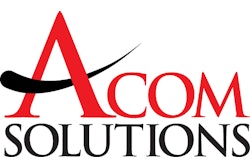Alabama-based manufacturing plant eliminates value-added network
Atlanta, GA — August 30, 2004 — The Hyundai Motor Co. has grown into one of the automotive industry's strongest competitors during its 37-year history. It's a story that follows the personal journey of its late founder closely, beginning in modest circumstances and rising to international prominence. But perhaps nothing signals the company's growth and acceptance in the industry as much as 2002's ground-breaking for Hyundai Motor Manufacturing Alabama, LLC (HMMA), the company's first assembly and manufacturing plant in the United States, which is expected to begin production in 2005.
Real-time Manufacturing Requires Real-time Data Exchange
In the automotive industry, electronic data interchange (EDI) is a vital business tool. Operating in a strict just-in-time (JIT) environment means coordinating production schedules, orders and delivery processes — and all their associated details — with a long list of vendors in an efficient and cost effective manner.
Hyundai considered using a portal to relay information along the extended supply chain of the new plant, but soon realized the limitations of that approach and turned to exploring EDI solutions. HMMA had already chosen a SAP R/3 system through an extensive selection process. Hyundai then revved up its EDI vendor selection process, eventually narrowing the field to four finalists, including SEEBURGER.
In the final analysis, HMMA selected SEEBURGER's Business Integration Solution to handle EDI transactions and AS2 communication for secure information transfer. "We were looking for an EDI vendor with strong experience in our industry who could offer best-in-class processes and work closely with us to set up a state-of-the-art EDI system for our new facilities," explained Jing Tang Hu, Manager-Material Management Information Technology, HMMA. "SEEBURGER met all our key criteria especially in the realm of automotive experience and communications. Our goal of being cutting-edge and cost efficient was furthered by SEEBURGER's recommendation to utilize EDIINT AS2 rather than the traditional value-added networks."
Hyundai is the first original equipment manufacturer (OEM) in the auto industry to work exclusively with AS2, bypassing value-added networks (VAN) for cost-efficiency from the start.
It was a tough decision to make, with far-reaching implications. Not only did the company need to ensure the operability of its own new systems, but coordinate with a long list of vendors who had little to no experience with the AS2 protocol. To handle the concerns, SEEBURGER and HMMA put together a complete plan to ensure the education and successful implementation of the AS2 requirements. The on ramp and testing of this innovative communication protocol with all the suppliers has gone just as smoothly as implementing the VAN.
"Hyundai had a very aggressive timeline to develop their B2B strategy and then implement and test the entire supply chain integration program," stated Scott Lewin, president and CEO, SEEBURGER Inc. "We were able to complete the entire project within six months and deliver it within Hyundai's budget. Not only are they saving money before the plant begins production, but we've helped them build their own electronic trading community and enabled all their suppliers to work seamlessly. This project will have a significant impact on Hyundai's extended supply chain for many years to come."









